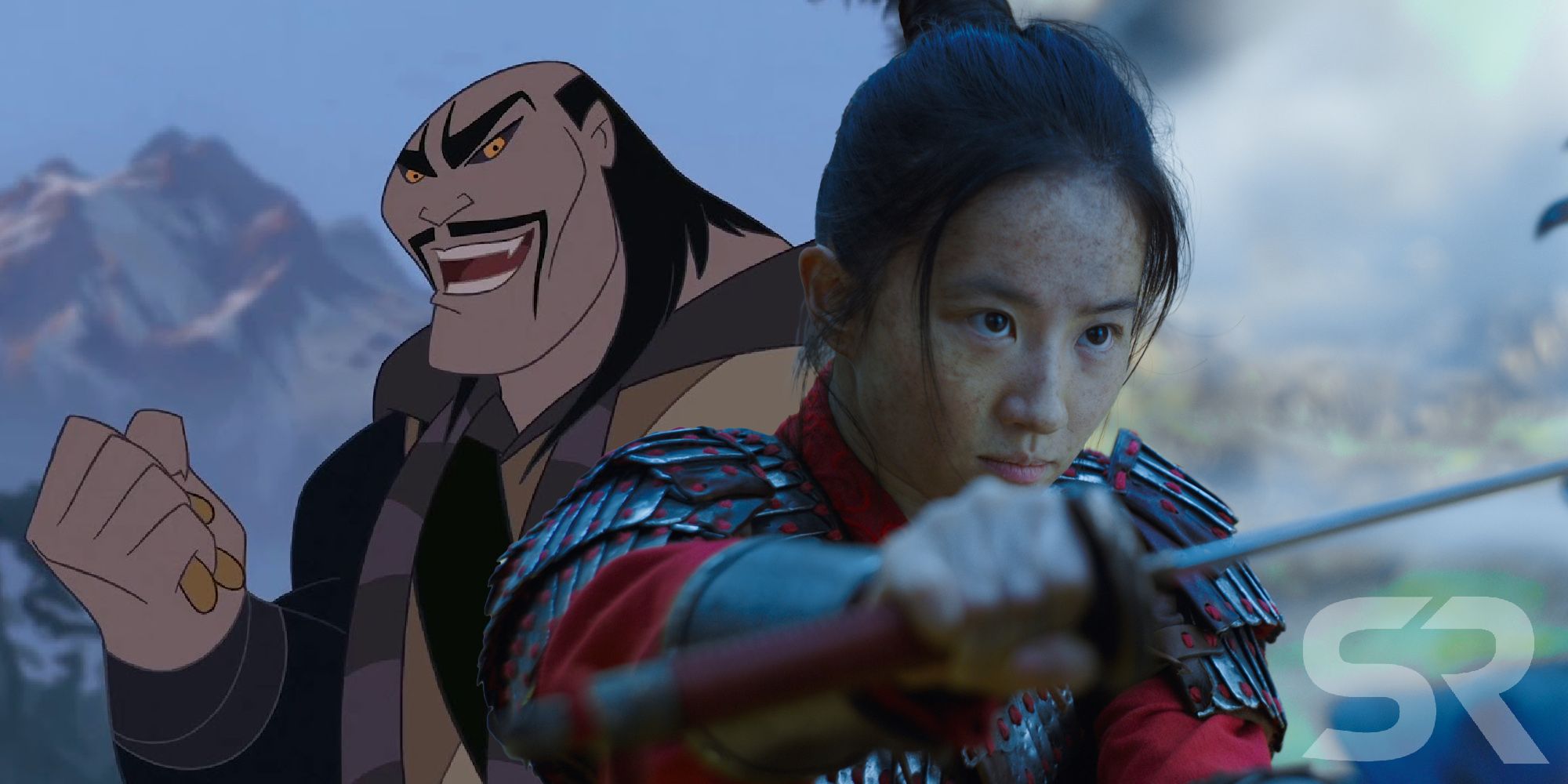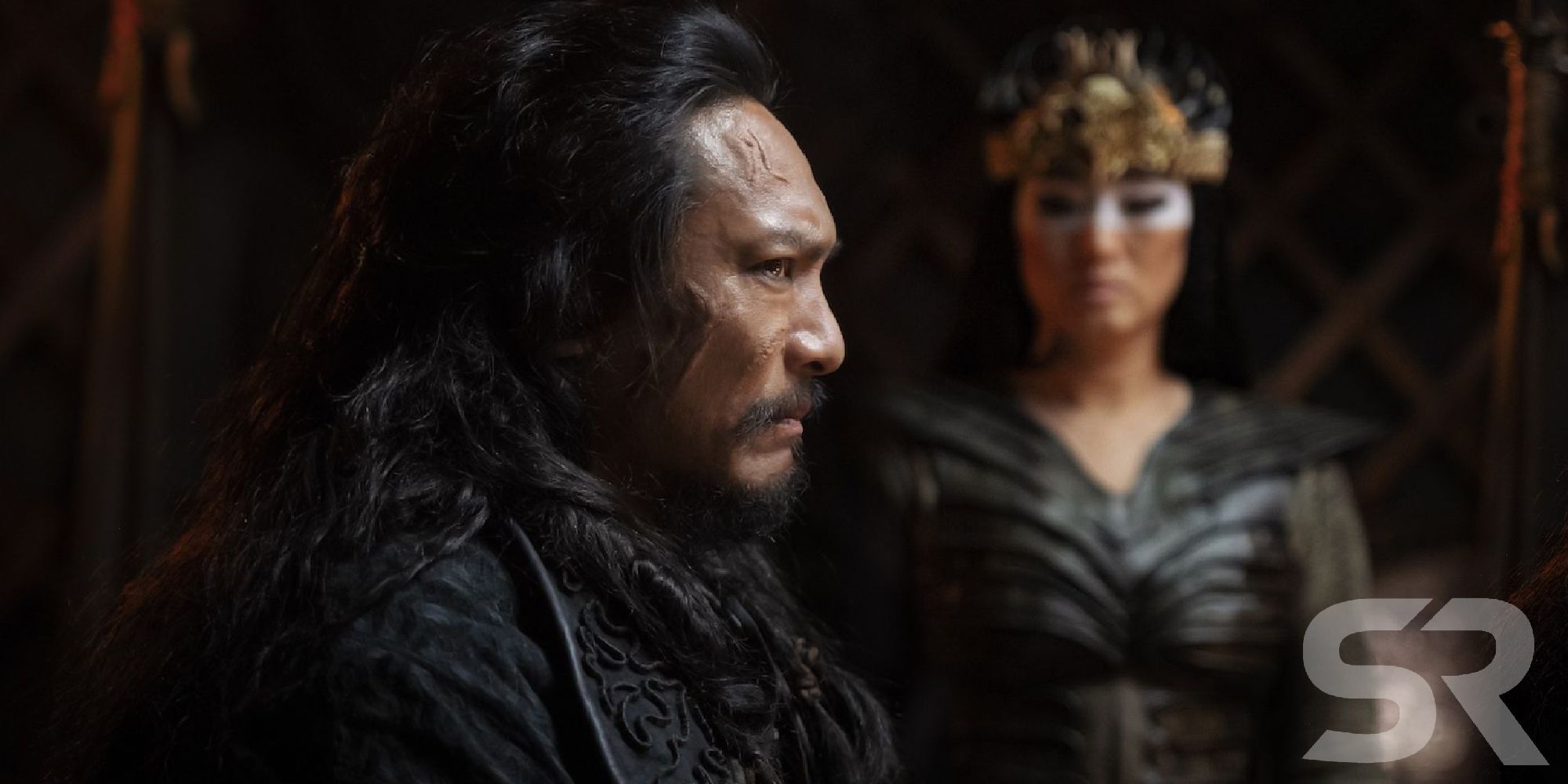Here's why Mulan's original villain Shan Yu isn't in Disney's new live-action remake. The falcon-eyed monstrous leader of the Hun was a terrifying presence in Disney's 1998 animated classic adaptation of the Ballad Of Mulan, but the 2020 remake replaces him with two villains. So why wasn't the bad guy - who was voiced in the original by Miguel Ferrer - brought in for the live-action redo?
In 1998's Mulan, Imperial China is invaded by Shan Yu and his Elite Hun army - who are based in part on Genghis Khan and the Mongol empire and also on Attila the Hun - and Mulan is forced to join up in the place of her aging father, disguising herself as a man to allow her conscription. After defeating the Hun army, Mulan's secret is revealed and she is cast out, only to once more save China as Shan Yu's survival is confirmed. Ultimately, it is by Mulan's hand that the almost-supernatural villain is slain. As with Mushu, who is left out, Shan Yu is nowhere to be seen in the remake.
In contrast, Mulan's live-action remake includes villain Böri Khan, played by Jason Scott Lee, whose sidekick is no longer the falcon Hayabusa but a shape-shifting witch by the name of Xianniang. Gone is the hulking physique and the one-dimensional evil vibes, in favor of a more grounded bad guy with a backstory of actual substance. Whether it is entirely successful depends on your feelings towards the film and its many changes, but there is good reason for the change.
In the original, Shan Yu is no more than a personification of evil with nothing behind his admittedly great character design. But Böri Khan, who leads the Rourans rather than the Hun, is based on a real historical figure and has the same weight that Mulan has on her shoulders: he is seeking to honor his own family, by exacting revenge for the murder of his father with a unified army of nomadic tribes maddened by the Chinese empire's theft of their lands. Just as Mulan is seeking her place as an outsider, so too are Böri Khan and his allies, albeit with a more nefarious edge. It's a more complex story and a darker one, which is why the film left out more whimsical elements and cut the original Mulan songs.
Xianniang too is introduced to add substance and complexity to the film's cast of villains. Mulan's fear is that her "powers" of Chi will be revealed and she will be ostracised as a witch and as a qualifier for her fears, that is precisely what happened to Xianniang when her own powers were revealed. She was cast out and ended up aligning herself with Böri Khan in order to find a world that accepted her for what she was. Both are ultimately twisted by their experiences, but the added complexity also adds a depth that wasn't present in Shan Yu in the original version of Mulan, which is definitely one of the ways it outstrips the 1998 version.


